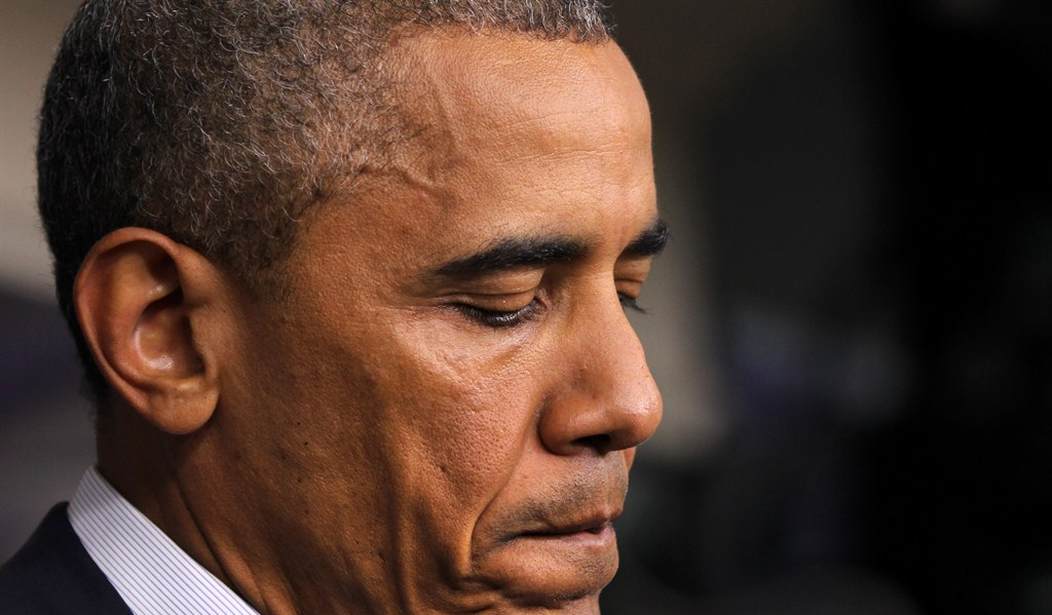Editor's note: In the August issue of Townhall Magazine, where this column originally appeared, HotAir's Mary Katharine Ham discusses how courts from New York to Washington are striking down liberal overreach.
It was a good day for the rule of law. On a Thursday in the early summer of 2014, those who would overstep their legal bounds in matters big and small were roundly rebuked by the nation’s courts for their, ahem, creative approach to governance.
There will inevitably come days when the courts are not so liberal in their doling out of I-told-you-sos to liberals, so we should gather our power-limiting rosebuds while we may.
In New York, former-Mayor Michael Bloomberg’s nanny-state utopia lost one of its signature components as the state’s highest court said nope to a ban on large soft drinks. The court affirmed a lower court decision that said the state health board overstepped its bounds when it essentially enacted legislation without the power to write law.
Under the soda ban, which was meant to go into effect in early 2013, establishments like restaurants, fast-food joints, movie theaters, sports stadiums, and food carts would have been prohibited from selling sodas over 16 oz. The nanny- staters lost this bid to meddle in your life because instead of doing the hard work of winning over the public and passing a law that would allow such meddling, the health board simply asserted power it didn’t have.
“[I]t is the province of the people’s elected representatives, rather than appointed administrators, to resolve difficult social problems by making choices among competing ends,” the court decision stated.
A recent Rasmussen national poll found more than 60 percent of Americans oppose local bans on sodas over 16 oz, with only 19 percent approving. That complicates the work ahead for the New York City Council, which says it will consider passing soda ban legislation. Of course. You can’t keep a good meddler down.
The city’s health commissioner, as reported by Time magazine, is determined to explore ways “to limit the pernicious effects of aggressive and predatory marketing of sugary drinks and unhealthy foods.”
We can only hope the media coverage of this overreach might cast a pall on the nanny-staters’ future attempts by revealing their authoritarian impulses.
On a grander scale for a meddler of even greater and graver ambitions, a unanimous Supreme Court decided, when it comes to presidents making recess appointments, the president cannot unilaterally decide when the Senate is in recess.
Recess appointments have long been exercised by presidents of both parties to install their nominees when thwarted by the Senate confirmation process. Such appointments may be made while the Senate is in recess, according to Article II of the Constitution, but must eventually be ratified by the Senate, or they become vacant again. The installment of John Bolton in the position of ambassador to the U.N. was a famous recess appointment of the Bush years. Though this appointment raised hue and cry from liberals, it was within the powers of the presidency.
Recommended
Not so for President Obama’s most famous recess appointments, which happened when the Senate was not actually in recess. The Senate, in the bipartisan manner for which the president is so very often yearning, hammered out a deal by which Senate Republicans would agree to a slate of Obama nominees if Democratic Sen. Harry Reid agreed to keep the Senate in session to prevent Obama’s more controversial, desired appointments to the National Labor Relations Board and the Consumer Financial Protection Bureau.
Yes, it sounds boring and technical, but stick with me. Unfortunately, the Obama administration has realized that it can snag plenty of unconstitutional powers by doing it in boring and technical ways that don’t arouse as much suspicion from a compliant press or much interest from a busy public. So, the Senate went about gaveling itself into session in the barest technical sense of the word.
It’s called a “pro-forma” session, and though it was decided by the Senate and approved by dint of the bipartisan compromise which, again, the president claims to love, Obama simply deemed the Senate was not in session. He appointed whom he wished to appoint and liberal writers and reporters lined up to explain to everyone that this was totally within his rights, silly conservatives and constitutionalists. The president’s a constitutional scholar, you know.
At the time, The Washington Post called the move, “a bold act of political defiance.” Liberal blog Think Progress offered this smart take: “Sorry, Boehner, the Senate cannot take away Obama’s recess appointment power by pretending to work.” A New York Times editor declared the “validity of recess appointments ... depend on the eye of the beholder.” The New York Times, he explained, approved of pro-forma sessions when they beheld them under Democrats thwarting Bush, but not when they beheld them being used against Obama.
No, really. Liberal reporter Brian Beutler declared Obama “suddenly on a recess appointments roll” and Ezra Klein argued it was Republicans who were radical, not the guy who “set a new precedent” that the Supreme Court knocked down 9-0.
In the end, by overreaching so thoroughly, the New York health board and the Obama administration made it materially harder for bureaucrats and executives to overreach in the future. The authoritarians who wish to make the rules for the rest of us are occasionally required to obey the rules themselves. And, for that, everyone who loves freedom can be thankful. •
























Join the conversation as a VIP Member